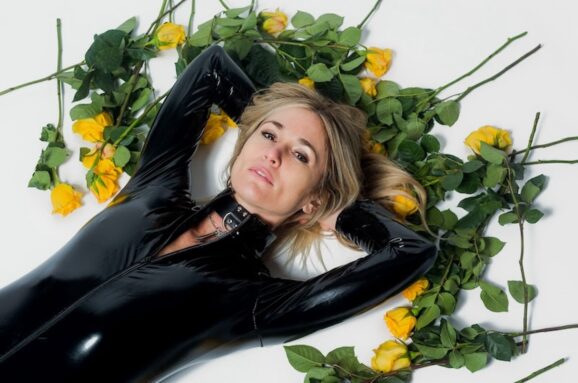 All props to Chamberlin as an engaging young band, but they may not have done justice to themselves or their music in the small room at Higher Ground, due in part to the sound in the house and an odd choice of material. In place of the layered density of their initial eponymous recording, the young band offered more crowd-pleasing gestures that no doubt went over well when opening recently for Grace Potter and her group, but somewhat overshadowed the admirable intricacy of their material.
All props to Chamberlin as an engaging young band, but they may not have done justice to themselves or their music in the small room at Higher Ground, due in part to the sound in the house and an odd choice of material. In place of the layered density of their initial eponymous recording, the young band offered more crowd-pleasing gestures that no doubt went over well when opening recently for Grace Potter and her group, but somewhat overshadowed the admirable intricacy of their material.
There’s no question the comfortably sized crowed enjoyed what they saw and heard on Good Friday evening in South Burlington. And Chamberlin isn’t the first band to find it a challenge to devise some continuity between the studio and the stage –or simply acknowledge and accept a fundamental difference. Given their youth as a group, less than a year into their evolution, the poise they did evince was admirable as was the musicianship that carried them, through close to ninety minutes on stage.
Frontman Mark Daly was genuinely effusive, almost effervescent, in his repartee with the audience and that’s in stark contrast to the moody persona Chamberlin seems intent on creating in the wake of the release of Bitter Blood (Roll Call Records). He sounded a bit disingenuous in his comments about being back home to play after being out on the road—the group hasn’t exactly toiled for years in obscurity within the Burlington local music scene—but that observation nonetheless hit a responsive chord with those present, not surprisingly, those devotees way upfront.
As did the cover tunes Chamberlin performed. An introspective piece, The Kinks tune “Strangers” seemed of a piece with their own originals like “Hard Fought Lesson” and Paper Crown,” but Paul Simon’s glib "50 Ways to Leave Your lover” was listenable only because the quintet gave the tune an edge before it was over. No doubt The Four Seasons “1963(Oh What A Night)” was intended as a sentiment aimed at the audience and the event, and Chamberlin proffered it without self-consciousness. But it’s lightweight nonetheless, made to sound all the more so after watching the band, accompanied only by a single guitar, harmonize so affectingly to begin their encore, with “Sixty Days.”
More such emphasis on vocal interplay, not to mention the meshing of acoustic and electric guitars as well as more prominence to the drums, would be true to the sonic picture Chamberlin painted on their recording, so they need to give some more attention to their live sound. But it’s way too early to pass judgment on how they present themselves on stage otherwise: they have time to ponder their choices as their natural talent evolves and they should be worth following during that process.










